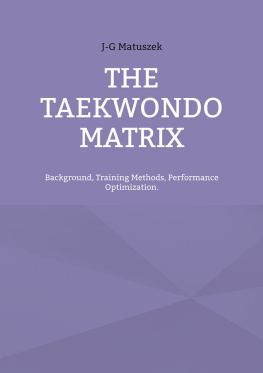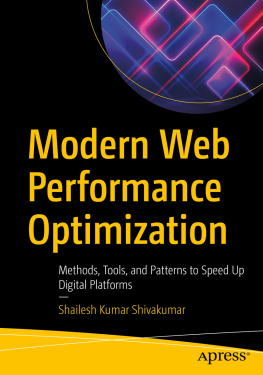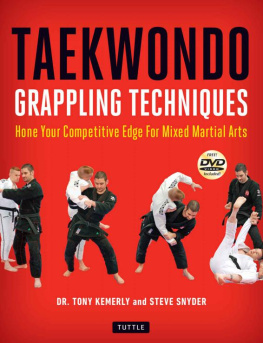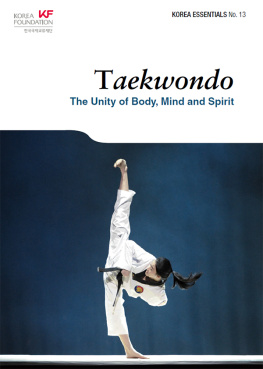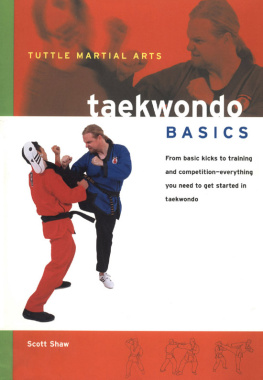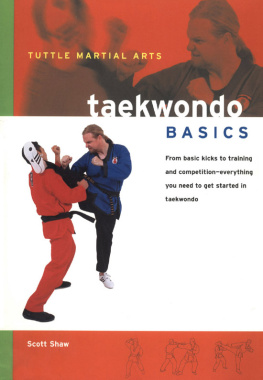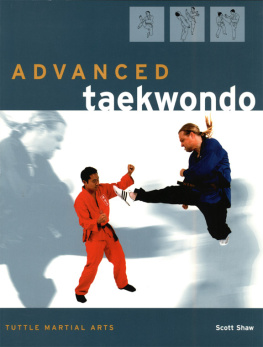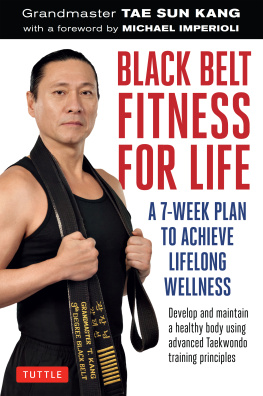Are we able to look behind the scenes, to see what Taekwondo means to us? There is an opportunity to unleash the ideas.
dedicated
to my taekwondo mentor
Grandmaster Dr. h.c. Lee Kyong-Myong,
to my former kyorugi trainer
Grandmaster Prof. Kim Yang-Woong,
to my longtime taekwondo acquaintance
Grandmaster Dr. h.c. Park Soo-Nam,
to Grandmaster Lee Kwang-Bae
to Grandmaster Kim Choung-Kwan, M.D.
CONTENT
INTRODUCTION
TAEKWONDO MIRRORING
What is the point of reflecting on Taekwondo, to draw attention to what to do, how to do it and why? Even when abstract concepts are projected onto the screen, suddenly we recognize certain strengths and want to progress them further. We observe, we hear and deepen our knowledge. The own experiences are directed towards competence. Self-efficacy increases for each individual, if he/she it desires.
Perhaps you are reminded of qualities you have already forgotten. Maybe it animates to new ideas, because this is how creativity is formed. If you want to enjoy the picture, you should look at all its facets, the history or mindset behind it as well as at the information that will continue to develop.
What is the meaning of creativity in the training process? It serves to create original ways to use options of movement patterns. Trainers will recognize the facts, analyze them and draw the consequences. Originality depends on the fact that trainers and coaches can do it and want to get involved in researching such possibilities.
After all, a training concept must also move forward. The will of the athlete and the trainer leads to individual successes that provide overall satisfaction. A creative phase only emerges through the observation and monitoring of a learning phase. None of the hidden abilities should be neglected. Creativity includes not only new discovery, but also rediscovery.
1. THE TAEKWONDO MATRIX
The Taekwondo matrix contains elements embedded in a totality of sporting benefits. It consists of main and secondary forms, regardless of whether they are superior or subordinate to one another. It contains not only physical forms of movement, but also ancient notions of cultural expression. Taekwondo establishes a certain structure that raises-up physiological, anatomical, sports-medicine and sports-science aspects as well as mental specifications.
The matrix is anchored in a mixture of different subdisciplines. Taekwondo opens mentally and physically ways to respond adequately to constraints and overcome unfavorable conditions. A deep practice of movement sequences in the different segments reuqires optimization again and again. The continuous change of the different skills constantly broadens the personal abilities.
Thus Taekwondo is excellently suited as a sporting program for schoolchildren and young people and represents an ideal mental and physical preparation for many demanding professions. Furthermore, numerous high-performance athletes of other sports appreciate the practice of Taekwondo as a positive physical and mental training supplement. If Taekwondo declares itself as a sensational competitive sport, it offers countless opportunities of regional, national and international tournaments, up to the participation in the Olympic Games. But also a balanced everyday life through this sport has its value for all age groups up to the far advanced ranks.
2. What is exercise for?
Exercise is vital, it means quality of life in whatever form. It motivates to live, whether organically or psychologically. In sport, people thrive and satisfy their senses. People demand strength, speed and endurance. And they will feel confirmed when they practice it.
Biologically, it is necessary for the billions of cells in our organism that we keep moving. The dynamic interplay between moving forward and resting is essential to generate tension and pressure in our organic system. Medicine has now found out that the fast and hard, but flowing and non-abrupt movements prevailing in martial arts are good for the internal organs and are conducive to healthy living.
The matrix of the Taekwondo complex shows what can be done with Taekwondo - and in what way. The prerequisites for the interactive play of forces are found in the personal attitude, in the will and in having fun. They are perfected by the conditions of practice and learning.
3. What does sport make of us?
Sport affects not only the muscles, but also the immune system, hormones and the genes. Sport is necessary for the plasticity of the brain, as medicine knows today to report. Sport is always going to the limit, and that is exactly what challenges people. In sports you learn how to deal with borderline situations, which then helps in professional and private life. Exercise is a good protection against stress.
So sport determines physical and mental fitness. It serves the self-control of one's own chances. Sport and fun are important components of a life concept. Properly adopted, this also means taking a very close interest in it. This is probably what the famous mountaineer Reinhold Messner meant when he once said: The experts start where the fun ends - in all areas. When the serious is recognized, it can also be filled with fun. After all, fun is also what brings benefit. Without joy there is no success, without identification nothing new is created. So with what vigor do we approach Taekwondo?
4. Taekwondo and Corporate Management. What is Corporate Fitness Management?
CFM is part of corporate social responsibility. Corporate fitness management can be implemented in any company. Only top-fit employees can deliver top performance. The position is not decisive, because everyone has to perform well in his or her job. Managers without sport lack efficiency.
Why managers should train Taekwondo? It is not just a sport, an Olympic one moreover it is also a sport of managers. The question arises, what can managers learn from athletes? We encounter a number of skills that could be useful in the course of life.
Personality fitness plays an essential role in optimization in both, sport and management. The Management-personality is characterized by ability, knowledge and will. That is why in the big companies the "personal trainers" take a significant status. The booming scene of corporate training will not be able to escape the Taekwondo offer.
In the so called business assessment centers, the personality-identity of managers is tested. Not only their professional skills are checked, but also psychological ones, such as stress resistance, creativity or the readiness to react. For this purpose, consultants and evaluators could also use Taekwondo resources.
The monitoring of skills reflects the individual performance. Readiness to perform is a matter of attitude. Its tools are self-awareness, selfresponsibility, self-confidence, and self-overcoming, (Behavioral Psychology, Jens Corssen). The control of opportunities determines the profile of one's identity.
What is the fitness of a personality? In many professions, assertiveness is drawn from energetics. How do managers manage their physical skills? That will also depend on the value of the healthy psyche. The answers to the questions of corporate-fitness-management can quickly be backed up with advice from the world of sports.
How can managers keep themselves physiologically fit? How can an inexplicable decrease in performance be analyzed? What about prevention and treatment of civilization diseases? How do managers make their actions more explosive? What support is available for effective warm-up and cool-down in sports and recreational activities? How can the status-quo of physical resilience be defined and measured? What about overload? How can the immune system be strengthened in the mode of optimal training preparation? What are the options for strengthening the body's oxidative capacity? What does modern mental training look like?
Next page
